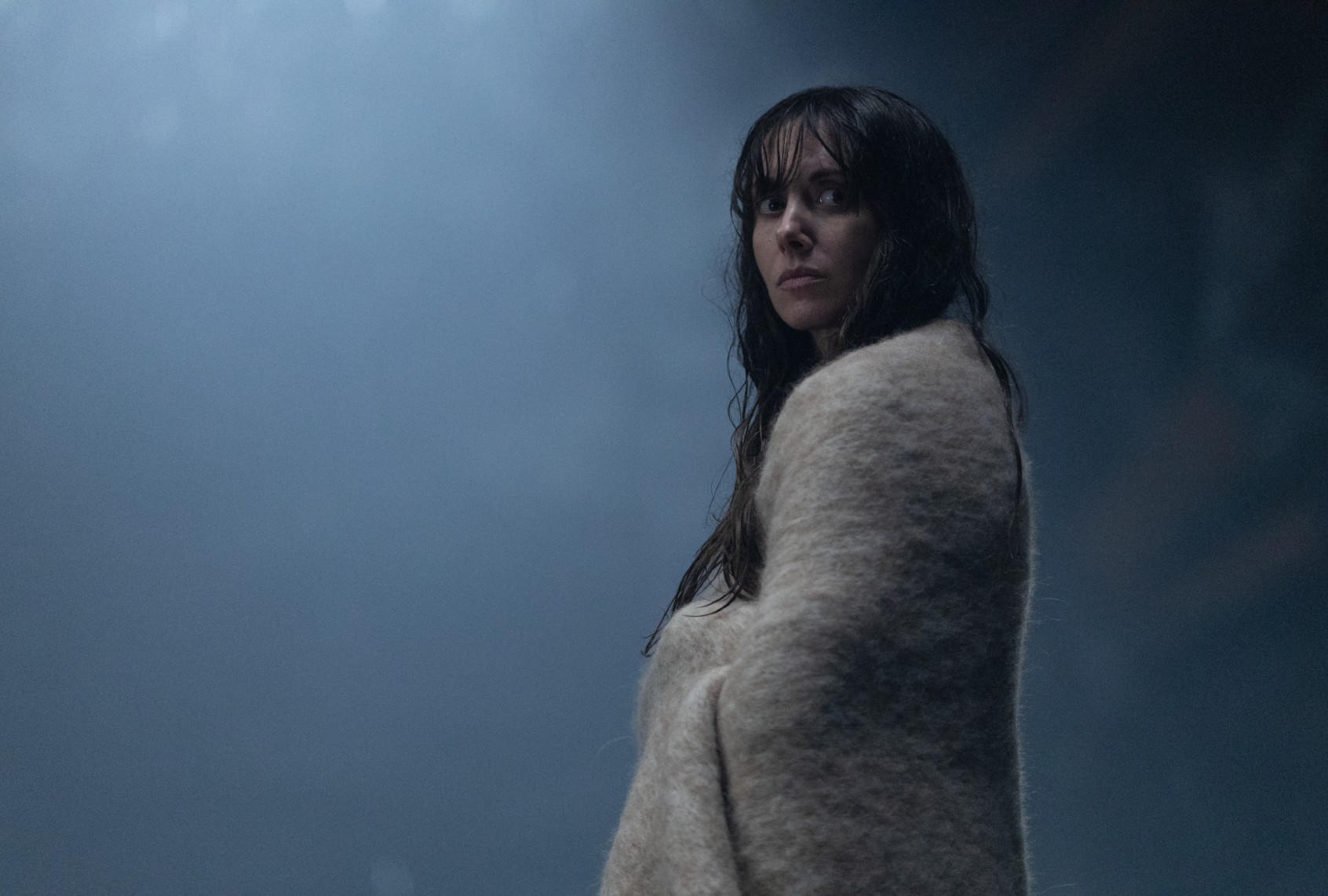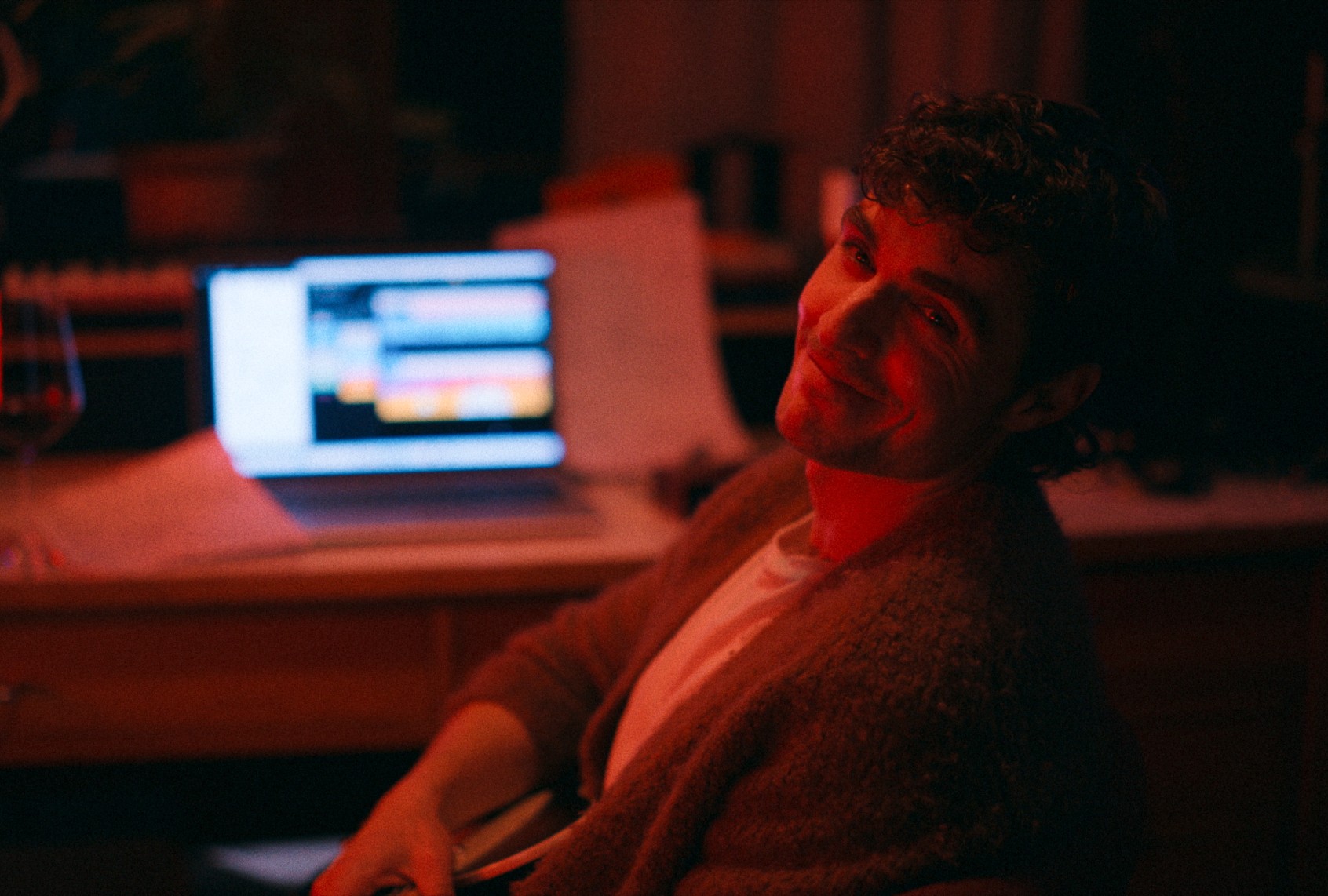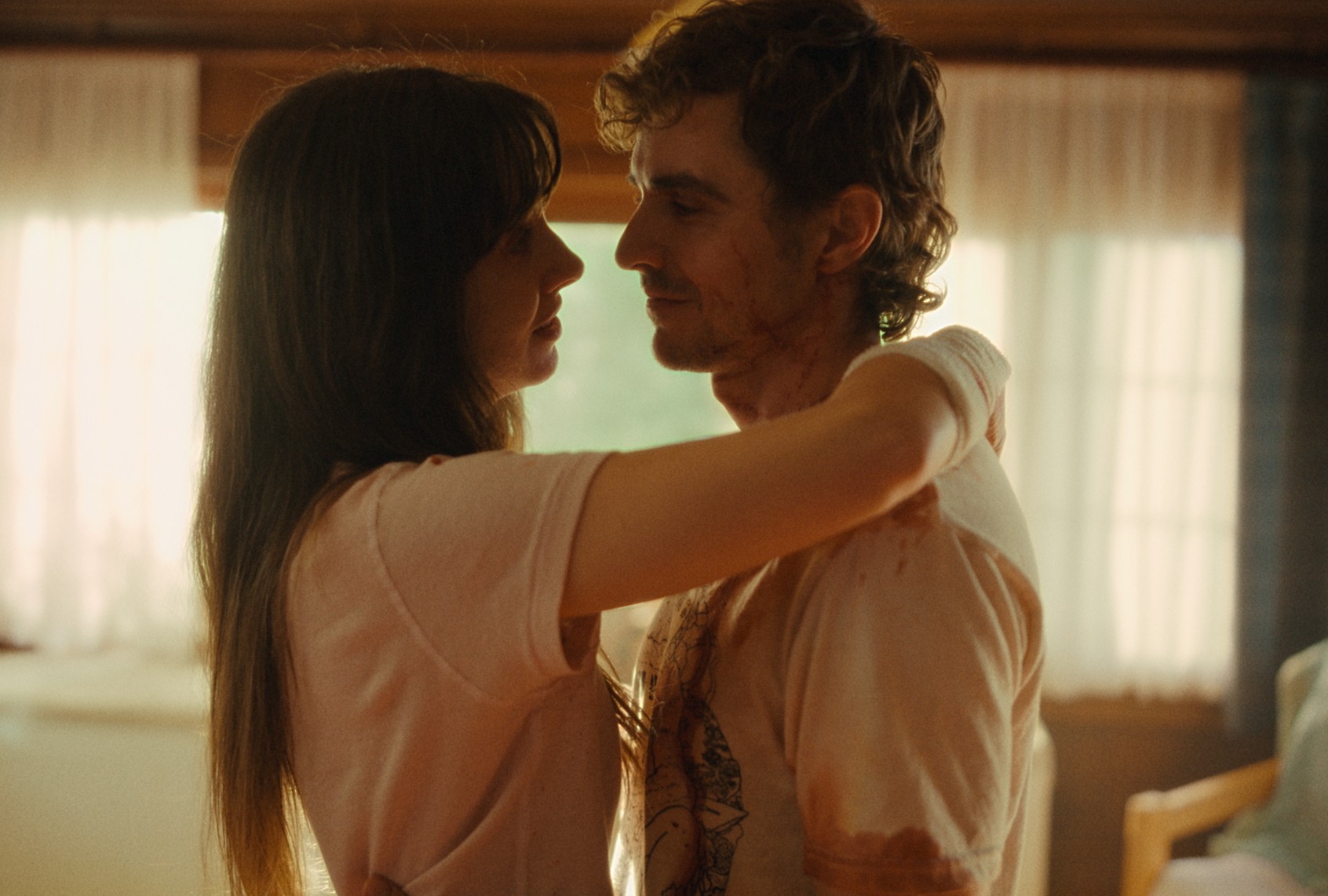When you’re busy falling in love, it’s easy not to see the line between romance and codependency thinning. Loving is an invitation to get out of our own heads, to free ourselves from neurotic spirals and self-doubt, trusting that things will be alright so long as we have that other person by our side. Exchanging time, energy and attention with someone else feels good — natural, even — like an animal instinct that was dormant until fate intervened. But that exchange can easily start to feel like a transaction, in which two people are paying for something that should come freely. And in their wry, new horror–comedy, “Together,” Alison Brie and Dave Franco cleverly explore just how much two people in love can invest into a relationship before they’re depleted.
In reality, Brie and Franco are married, adding a shrewd, singular layer of truth to each grisly moment — both literal and emotional — of writer-director Michael Shanks’ debut feature. Every argument between Brie’s plucky elementary school teacher, Millie, and Franco’s wannabe indie rocker, Tim, is tinged with an innate gravity that wouldn’t be present if it weren’t for the stars’ real-life relationship. When Millie lands a new teaching job out of state, she and Tim ditch their life in the city for a quaint, quiet house in the country. But, as big moves so often do, the journey dredges up long-buried feelings of discontent and malaise between the couple. Far from their friends and family, Millie and Tim suddenly are free of distractions, forced to admit how much they rely on each other and how crippling that need can be. “If we don’t split now, it’ll only be harder later,” Millie admits one night, a delightfully blunt bit of foreshadowing, considering that “Together” is a movie about a couple on the verge of a breakup who wake up one morning to find themselves hermetically attached.

(Ben King/Neon) Alison Brie in “Together”
Alison Brie and Dave Franco cleverly explore just how much two people in love can invest into a relationship before they’re depleted.
While I’ve been fortunate enough not to require the use of an electric hand saw to separate myself from my partner, breaking up has occasionally felt just as gruesome. Like the fissure between Tim and Millie, the cracks in our once-perfect relationship formed so gradually I didn’t even notice them. It was as if one day, after almost eight years, I looked down and realized I had staged my life on a glass platform sitting over a ravine and thought, “What if I stomped my foot really hard right now?” Surprise, surprise: When you start testing the strength of the glass, its sturdiness doesn’t always hold. But just because the surface has split doesn’t mean the images reflected in the glass are no longer beautiful, or that they don’t have value. They might even be convincing enough to give the relationship another shot. And it’s when “Together” contemplates this very human desire to stay in an unstable environment for the sake of familiarity that the film becomes a deeply resonant review of codependent romance and all of the horrors it produces.
Throughout his film, Shanks weaves plain yet cutting dialogue through his stars’ natural chemistry to create an atmosphere that feels consistently unsettling, not unlike the feeling of being in a collapsing relationship and waiting for the other shoe to drop. After so many years together, Millie and Tim have a rapport that is simple and comfortable, so easygoing that it dulls the spark of passion that flickers between them each time they come close to getting in a fight or having sex. When I used to tell people about my relationship with my ex-boyfriend, I’d always say how great it was that we never fought. We didn’t argue; we rarely disagreed. Our dynamic was soft and non-threatening. That is, until one day, I woke up and realized that I’d been siphoning passion and tucking it away somewhere, prioritizing routine to keep things easier. The physical aspect remained present, but less so than at the beginning of the romance — a newly formed feature of our relationship that I told myself was completely normal and healthy for couples that had been together as long as we had.
But the dam was already broken, and soon, a deluge of realizations followed. We had trouble finding topics to discuss when we went out, and that was if we went out at all. Our goals diverged, with me moving further into my career while he questioned if the one he had chosen was right for him at all. Soon, it felt like there was a nebulous wall between the two of us, fluid enough that we could reach across to one another but too thick to make contact.
Start your day with essential news from Salon.
Sign up for our free morning newsletter, Crash Course.
Noticing a problem in your relationship is sort of like finding a spot of black mold growing in the corner of your ceiling; you could let it fester and allow your brain to rot into mush, or you could do something about it before it gets even more serious. I began to keep myself up at night worrying about what to do, how to broach the subject of my lingering discontent. We had been going on eight years together, meaning we were part of each other’s families. He spent Christmases at my mom and dad’s house; my three nieces, all under the age of 10, knew him to be their uncle just as much as they did with me. I used to think all of these aspects of our relationship were what love — and more broadly, life — were all about, and I still do. That’s precisely why reconciling the comfortable parts of our love with my lingering dissatisfaction felt like a betrayal of my own heart. If I screw this up, if I let this go, will anything ever amount to what we had again? Eventually, I realized that time fed our complacency, and that adding more of it to the eight-year pile we’d already amassed would make it all the more difficult to claw our way out later.

(Germain McMicking/Neon) Dave Franco in “Together”
Noticing a problem in your relationship is sort of like finding a spot of black mold growing in the corner of your ceiling; you could let it fester and allow your brain to rot into mush, or you could do something about it before it gets even more serious.
In the second act of “Together,” after a freaky hike in the woods leaves the couple stranded overnight, Tim and Millie begin to experience a strange pull toward one another. The couple’s physical magnetism is at odds with their growing unhappiness, and in this discord, Shanks strikes imaginative new ways to portray how difficult it is to let someone go. Wanting to leave but feeling trapped in your dynamic is a distinctly human nightmare that has pervaded our species and plagued our ancestors for eons. As Millie and Tim fall into a well-worn pattern, their literal inability to unstick themselves from something increasingly toxic becomes both hysterical and uniquely depraved. There’s an animalism to “Together” that is so forgiving and realistic that, occasionally, the film feels genuinely shocking in a way a body horror hasn’t in some time — and that’s saying something coming less than a year after “The Substance.” But Shanks is generous without being excessive, taking the heat from a boil to a simmer and back again at record speed, creating an exciting pacing that feels as veritably dubious as any amicable breakup.
While “Together” builds nicely to its thrilling (if slightly predictable) climax, it’s Shanks’ steadfast honesty that really delights. He expertly tracks the perversion of a perfect life, where two people agree to break down their comforts and live, however briefly, in a state of unrest and consuming depression, imprisoned in a palace made of memories. But just as time gradually erodes displeasure within a relationship and turns it into apathy, time can also diminish the pain felt by two people in love who agree to go their separate ways. That feeling of being incomplete starts to fade, filled by other things — work, art, old friends, new flings. But as Millie and Tim realize, there is no way to escape the pull that exists between them. That love will never fully die is as beautiful as it is terrifying, and “Together” understands and relays that fact as plainly as any great romance. I’m just shy of three months into my breakup, a decision that has devoured my summer and will no doubt continue to eat into my fall. But I wouldn’t have it any other way. Loving is the most insane, foolish and utterly soul-consuming thing we could ever do. That’s why it feels so good.
Read more
about other great, horrific love stories


